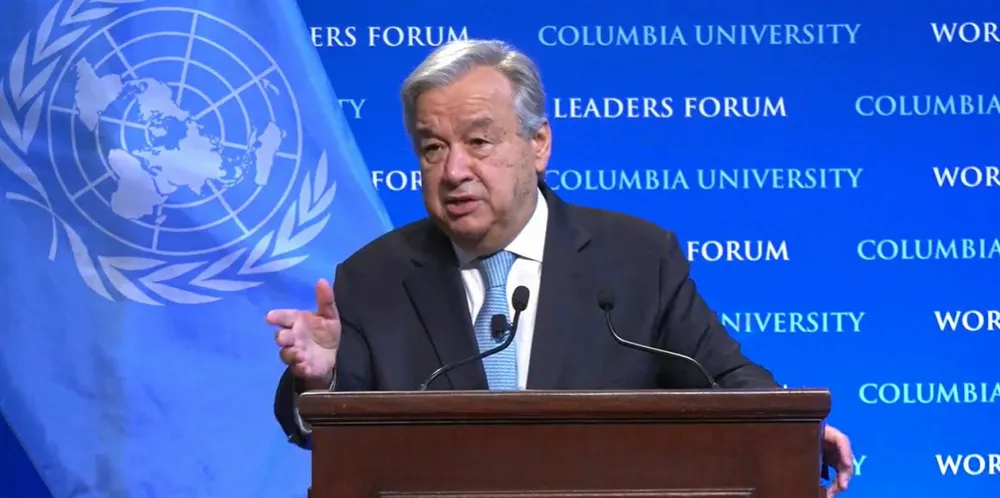Tax Big Oil's 'excessive' profits to fund just global energy transition: UN chief
United Nations secretary-general António Guterres calls on governments to accelerate renewable power plant build-out as engine of 'coordinated global solution' to energy crisis and precarious climate goals
